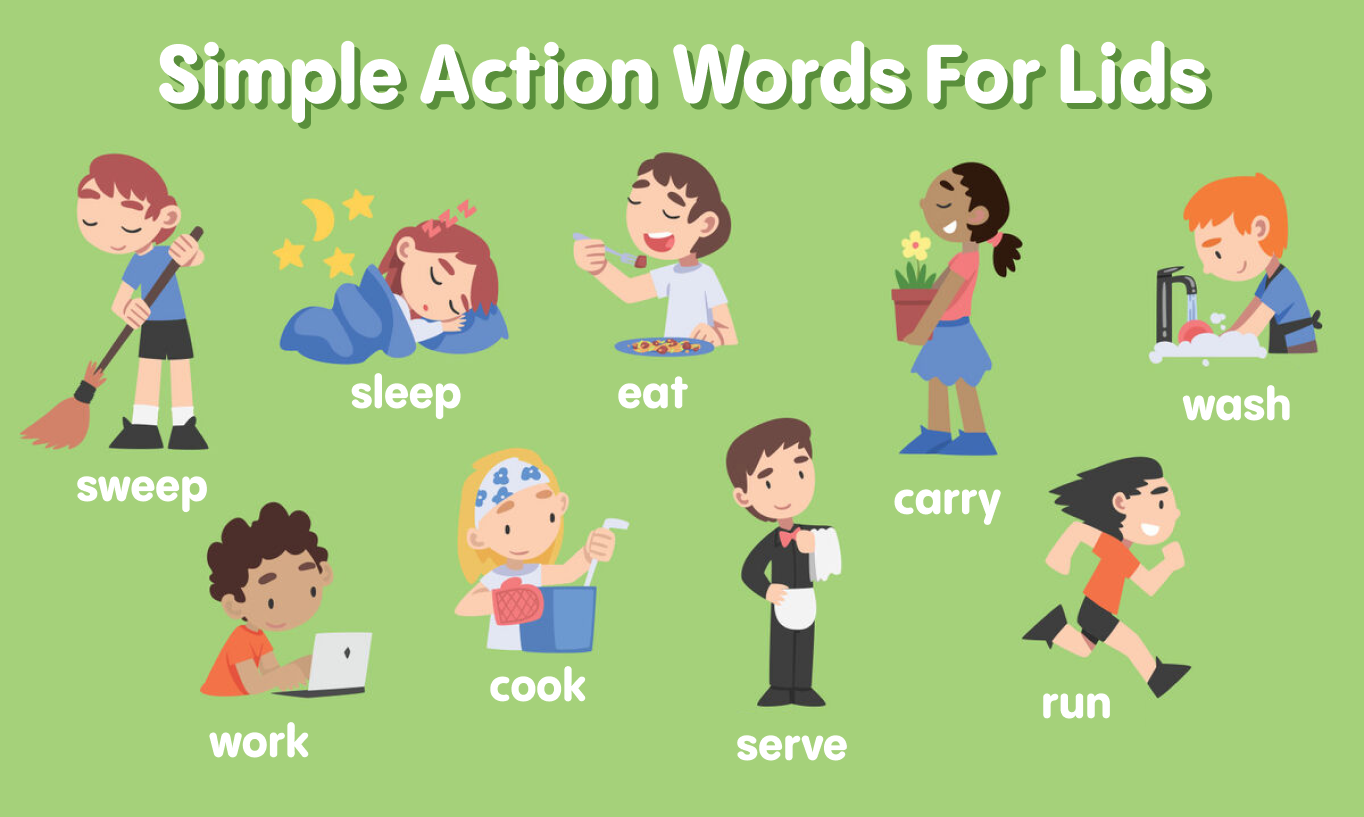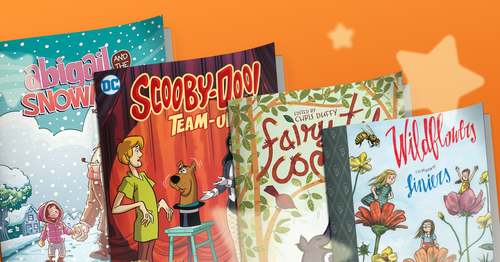Our comprehensive guide provides an in-depth understanding of English verbs, presented in an accessible and engaging way. We will introduce you to the different types of verbs, verb tenses and fun ways to learn and use them. We've got you covered, from lively games and creative activities to practical everyday applications and reinforcement methods. Let's go on this exciting journey together and make learning English verbs an enjoyable experience for your child. Let's equip them with the knowledge they need, not just for school, but for life!
Understanding English Verbs
When we learn English, one of the first vital parts we encounter is 'verbs'. They are the engine of our sentences, describing actions, events or states. Let's simplify this concept for easier understanding:

Action Verbs (translation) describe physical or mental actions. Examples include 'run', 'think' or 'jump'. To make them easier to understand, consider using flashcards with pictures that illustrate these actions.
Linking Verbs (translation) don't show actions. Instead, they link the subject of the sentence with additional information. Words like 'is', 'seems' or 'will' are common examples. You can visualise linking verbs by using diagrams or mind maps.
Helping Verbs (translation), or auxiliary verbs, help change the tense or voice of the main verb. Words like 'will', 'have' or 'do' fall into this category. Cartoons or sequences of pictures can be helpful to show how the main action (main verb) is modified by an auxiliary verb.
Finally, there are Verb Tenses (translation), which indicate when an action occurs - past, present or future. Start with simple tenses such as present (I am running), past (I have run) and future (I will run).
Making Verb Learning Fun

Now that we've got the basics down, let's add fun to our English verb-learning journey. The key to effectively teaching children new concepts is engaging them in activities they enjoy. Here are some engaging verb activities that you can easily set up at home:
Verb Charades
Charades is a classic game that never fails to entertain, and it's also a fantastic way to teach verbs. Prepare a bowl with paper slips, each with a different action verb like 'jump', 'eat', 'dance', etc. Then, have your child pick a slip and act out the verb without speaking. The rest of the family has to guess the verb. This game helps reinforce the meaning of various action verbs and encourages creativity and active learning. For visual aids, consider using illustrated flashcards of the verbs to help younger children understand the actions they need to perform.
Verb Bingo
Bingo is another great game to teach and revise verbs. Create Bingo cards with various verbs written in each square. Call out the definitions or synonyms of those verbs, and have your child mark the corresponding verb. The first to complete a row or column wins! For younger learners, you can use pictures representing the verbs on the bingo cards. This game helps in improving verb vocabulary and understanding.
Storytelling with Verbs

Storytelling is an immersive way to learn verbs. Together with your child, create a story using a list of verbs. Ask your child to formulate a sentence for each verb to build the story. You can take this activity further by incorporating props to represent different verbs or even have your child illustrate the story. This enhances creativity, and the narrative context helps children remember and understand the verbs' use better.
Verbs Art Project
Let's bring arts and crafts into our verb learning. Have your child create a "verb poster". Provide magazines or printable images and ask your child to cut out and stick pictures representing various verbs. They can then label each picture with the corresponding verb. This creative project promotes understanding of verbs and provides a visual aid that your child can refer to whenever they need a verb refresher.
Incorporating Verbs in Everyday Conversations
One of the best ways for children to learn and retain new language concepts is to weave them into daily life. Let's explore how we can incorporate verb learning into everyday conversations and practice.
Role-Playing Scenarios
Role-play is an excellent way to get children to use verbs in context. You and your child can enact scenarios that require various verbs. For example, you could simulate a 'trip to the zoo', where your child can 'observe' animals, 'feed' them, or 'take' pictures. These scenarios can help your child practice action verbs and learn their appropriate sentence usage. Props can be used for younger kids to understand the action being performed.
Daily Routines Discussion

Daily routines are filled with verbs! Make it a habit to discuss the day's routines using specific verbs. For example, in the morning, you can say, "Now, we 'brush' our teeth," or "Let's 'eat' breakfast." During these conversations, emphasise the action verb you are trying to teach. This practice can help your child become comfortable using verbs in daily communication.
Consistent Verb Practice
Like any other skill, mastering verbs requires consistent practice. Encourage your child to use new verbs they have learned in spoken and written English. They could write a 'verb diary', using a new verb they learned that day in a sentence. Or, during conversations, you can challenge your child to use a particular verb in a sentence correctly.
Regular Verb Quizzes
Frequent quizzes can reinforce verb knowledge and measure progress. These quizzes can be fun, like a quickfire round where you call out a verb, and your child has to use it in a sentence. Or you could have a verb 'spelling bee', where you define a verb, and your child has to spell it out. Remember to keep it light and fun, celebrating successes and gently correcting mistakes.
Every child's learning journey is unique, and progress might not always be linear. But with patience, persistence, and a sprinkle of fun, your child will be mastering English verbs in no time. As a mom, your role in this journey is irreplaceable. Your support and encouragement will help them learn and build their confidence in using English.
So let's embark on this journey together, making English verb learning an enjoyable experience for your child, and empowering them with the knowledge they need, not just for school, but for life! Remember, the journey of learning is just as important as the destination. Let's make it a memorable one!








